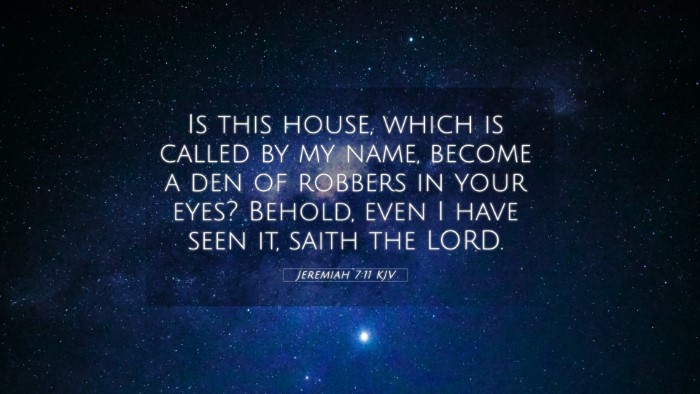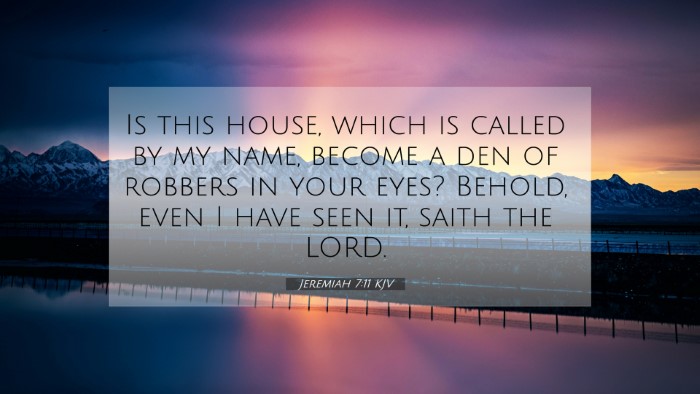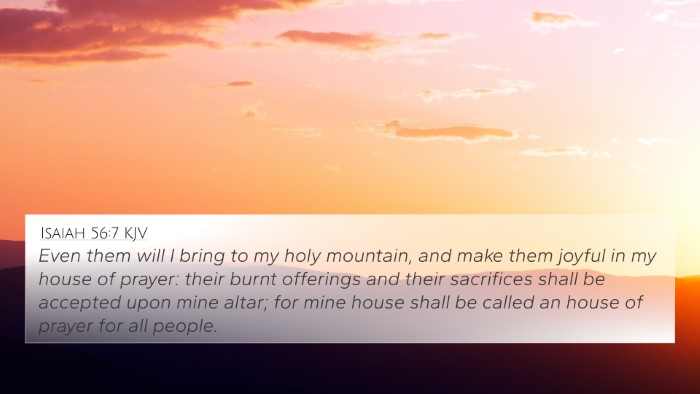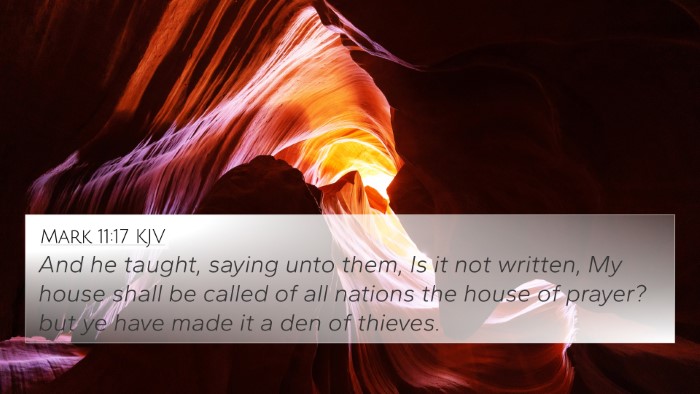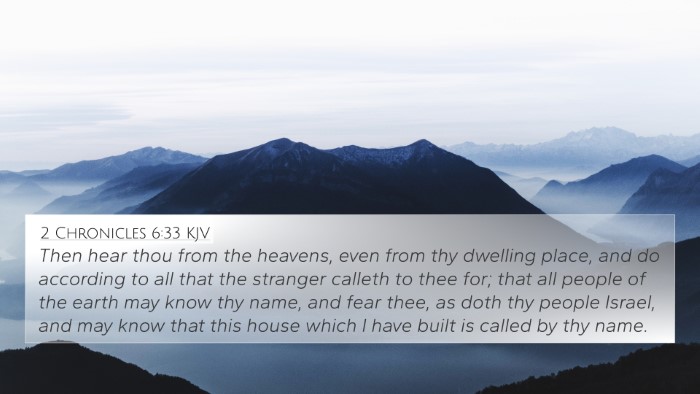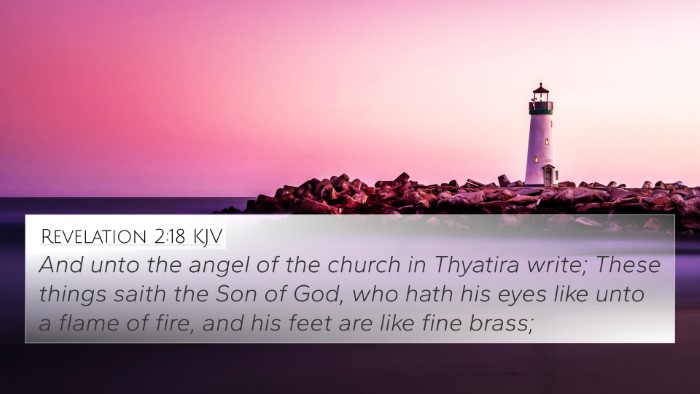Understanding Jeremiah 7:11
Jeremiah 7:11 states: "Is this house, which is called by my name, become a den of robbers in your eyes? Behold, even I have seen it, saith the Lord." This verse is a profound declaration from God through the prophet Jeremiah addressing the corruption within the Temple and the people's relationship with true worship.
Summary of Key Themes
The central messages of this verse can be dissected as follows:
- Warning against Hypocrisy: The Temple, a sacred space, is being likened to a "den of robbers," indicating the betrayal of its intended purpose.
- God's Awareness: The phrase "even I have seen it" emphasizes that God is fully aware of the actions of His people.
- Judgment and Mercy: While judgment is looming, it also presents an opportunity for repentance.
Commentary Insights
Using insights from trusted public domain commentaries, we can further explore the implications of Jeremiah 7:11.
Matthew Henry's Commentary
Henry emphasizes the irony present within this verse. He notes that the people believed that mere rituals performed in the Temple would guarantee God’s favor, failing to recognize the importance of genuine faith and moral conduct. He argues that their worship had become superficial and that their actions contradicted their outward appearances.
Albert Barnes' Commentary
Barnes highlights that “a den of robbers” signifies a place where thieves gather, drawing a parallel to how worship should draw people to God rather than a gathering place for sinfulness. His analysis indicates a societal decline and a spiritual corruption that directly challenges the holiness of God’s house.
Adam Clarke's Commentary
Clarke contributes to the understanding by explaining the historical context of the Temple’s corruption at that time. He mentions the extent of idolatry and the moral decay in the nation, illustrating how such conditions invited divine judgment, showcasing God’s righteousness in addressing their transgressions.
Cross-Referencing Biblical Texts
This verse connects richly with various other scriptures, providing a multi-dimensional view on the themes inherent in Jeremiah 7:11. Here are some pertinent cross-references:
- Matthew 21:13: Jesus echoes Jeremiah's words, calling the Temple a den of thieves.
- Isaiah 56:7: This verse points to God's desire for His house to be a house of prayer.
- Zechariah 7:10: A reminder to avoid oppression and malicious acts, strengthening the call for integrity.
- Malachi 1:10: Malachi laments the dishonor rendered to God by the people’s offerings.
- Luke 19:46: Further accounts of Jesus condemning the commercialization of sacred space.
- 1 Corinthians 3:16-17: Discusses the Temple of God being holy, indicating the importance of purity within God's dwelling.
- Ezekiel 8:6: Shows God's revelation of the abominations happening in the Temple.
- Romans 12:1: Paul calls for living sacrifices, emphasizing moral integrity in worship.
- Hebrews 10:22: Encourages true worship and the purity of heart.
- John 2:16: Jesus turning out the money changers reinforces the sanctity needed in worship spaces.
Comparative Bible Verse Analysis
In this comparative study of these cross-referenced verses with Jeremiah 7:11, we notice a recurring theme: the call for authenticity in worship and a warning against complacency in our spiritual practices. Each of these passages enhances our understanding of the dangers of hypocritical worship, urging believers to evaluate their relationship with God critically.
Tools for Bible Cross-Referencing
To explore these connections further, individuals can employ various tools for Bible cross-referencing. These include:
- Bible concordance: A reference tool that lists words and phrases found in the Bible.
- Bible cross-reference guide: A resource that highlights related scriptures.
- Cross-reference Bible study: A method to deepen study using connections across biblical texts.
- Comprehensive Bible cross-reference materials: Various books and online tools designed to help locate inter-Biblical dialogue.
Conclusion
Jeremiah 7:11 confronts us with a critical examination of our intentions in worship and God’s unyielding righteousness. By understanding this verse and its connections to other scripture, we can foster a more profound relationship with God rooted in authenticity and reverence. For those seeking Bible verses that relate to each other, the insights gained from cross-referencing and comparative analysis can transform one's understanding of God's Word.

